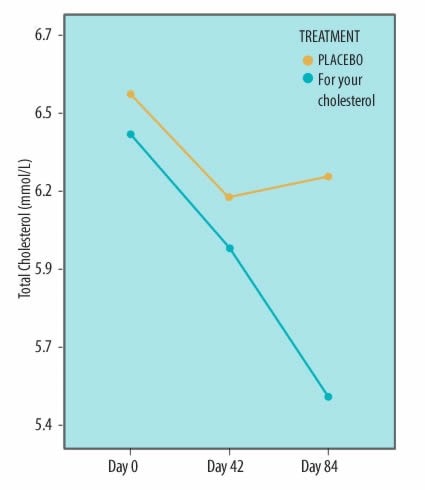Personalised Microbial Intervention
The term ‘Personalised Microbial Intervention’ has been bandied around in health and fitness circles recently, but what does it actually mean? We thought we would try to explain…
Firstly, let’s take a little walk back in time to the dawn of probiotic research: surprising as it may seem, the potential power of probiotics was recognised over a century ago, but has been somewhat buried under the avalanche of pharmaceutical research that has preoccupied medical science for the past few decades. The world was so keen to embrace and run with the antibiotic revolution that we forgot that we had our own internal army of immune-boosting defenders already on-board, until an interest in the hidden world within our intestines re-surfaced in the latter part of the last century. Learn more by reading: The History of Probiotics.
Building on embryonic work by Russian scientist Metchnikoff, one of the first scientists to recognise the potential health-giving properties of our intestinal flora1, and suggested that we may be able positively influence health and combat the aging process by careful manipulation of gut bacteria, this renewed focus on the human microbiome has determined that it may have such far-reaching effects within the body, that some professionals claim that it should be considered to be an organ in its own right2. Find out more: The microbiome - all you need to know.
What is even more astonishing and exciting is that, within the myriad of bacterial species we support, the emerging evidence is suggesting that each different species – and the different strains within that species – may have its own unique effect on our health and well-being, in a symbiotic relationship that benefits both resident and host.
Within this article:
- PMI – one probiotic does NOT fit all
- Strain-specific products
- PMI could utilise our microbiomic ‘fingerprint’

PMI – one probiotic does NOT fit all
You may not be aware, but when it comes to probiotics, one size – or strain – does NOT necessarily fit all. It is this concept which is now revolutionising the probiotic world and, whilst overall gut health may be a key factor in the development of many diseases, and the use of broad-strain probiotic formulations definitely have their place in rebalancing the gut flora, it is becoming possible to tailor the probiotic supplement protocols to incorporate specific strains to address specific health and digestive conditions: personalised microbial intervention.
We’re delighted that one of the most respected therapists in the field of nutritional therapy, Antony Haynes, has recognised and embraced the potential of ‘personalised microbial intervention’. In a lovely piece recently published in the Natural Dispensary magazine3, Haynes wrote:
‘Wouldn’t it be incredible if science could identify within the millions and billions of bacteria, that specific strains have specific actions, leading to definitive positive health outcomes?’
Wouldn’t it indeed? In fact, it’s already been done!
Ahem, we’ve been shouting about ‘Strain specificity’ for years now, and you can see our article - Are all types (strains) of friendly bacteria the same? for a more in-depth look at the classification of bacteria, and how it’s the strain and not just the species that’s a key consideration when it comes to choosing the right probiotic.
Strain-specific products
It’s been possible to identify strains that provide benefit in many, often unexpected, ways; in particular, specific strains of probiotics which have been shown to significantly reduce cholesterol. The three strains of bacteria, Lactobacillus plantarum CECT 7527, Lactobacillus plantarum CECT 7528, and Lactobacillus plantarum CECT 752, were used in combination in a randomised, double-blind and placebo-controlled clinical trial and shown to significantly reduce total cholesterol by 0.9 mmol/L (14%) after a three month period4.

Though they are life-saving medications, antibiotics have an indiscriminate action which may disrupt the delicate balance of the intestinal flora. Lactobacillus rhamnosus Rosell-11 and Lactobacillus acidophilus Rosell-52 are very hardy strains of bacteria which are not affected by the action of antibiotics, and so may help to keep the flag flying for our friendly flora throughout the course of medication. Healthcare professionals can learn more about Lactobacillus rhamnosus Rosell-11 and Lactobacillus acidophilus Rosell-52 on the Probiotics Database.
Saccharomyces boulardii is certainly one of the most studied species, and this diarrhoea-calming, anti-inflammatory, gut-healing, pathogen-clearing probiotic yeast is registered as a medicine in many countries around the world. Healthcare professionals can read more about Saccharomyces boulardii on the Probiotics Database.
Bifidobacterium lactis BB-12® was recently featured in possibly the largest ever clinical trial on probiotics, where it was shown to promote bowel regularity. Healthcare professionals can read more about this research on the Probiotic Professionals site: Largest ever probiotic trial supports BB-12® for regularity.
Two strains of probiotics – Lactobacillus rhamnosus GR-1® and Lactobacillus reuteri RC-14® - have been formulated based on the results of more than 30 years of scientific research. These two strains pass through the intestines to colonise in the genitor-urinary tract within 3-4 days of oral consumption. Clinical trials using over 2,500 female subjects demonstrated the efficacy of this probiotic combination in helping with thrush, cystitis and bacterial vaginosis - practitioners can find research on Lactobacillus rhamnosus GR-1® and Lactobacillus reuteri RC-14®on the Probiotics Database.
So, where do we go next to fine-tune PMI? Well, research is still emerging, and we constantly monitor the latest progress made in probiotic research, in order to ensure that we offer a range based on credible evidence and solid results.
PMI could utilise our microbiomic ‘fingerprint’
The field of probiotic research has now advanced to the level where it is claimed we can all be identified according to our unique microbial profile which, in a study conducted at the Harvard T.H. Chan School of Public Health this year, was claimed to be as individual as our fingerprints5. If our intestinal flora is so unique, then surely each individual needs an unique combination of strains to rebalance their gut bacteria, and their health?
Well, we haven't quite reached that level of supplemental sophistication, but who knows whether, in the future, science will provide practitioners with the tools to offer each patient a comprehensive profile of their gut microbiota, and then put together a personalised probiotic pill containing exactly the strains of bacteria they need to rebalance their health. Until that time, if you want to offer your patients PMI, you’ll agree that our product range is the closest thing!
For more information about strain-specificity, and the science that supports it, click on these links:
Which probiotics for IBS?
Which probiotics are best for women?
References
- Mackowiak, (2013), ‘Recycling Metchnikoff: Probiotics, the Intestinal Microbiome and the Quest for Long Life’, Frontiers Public Health. 2013; 1: 52.
- O'Hara & Shanahan (2006) The gut flora as a forgotten organ, EMBO Rep. 2006 Jul; 7(7): 688–693.
- A. Haynes (2015), Personalised Microbial Intervention, 'Only Natural', Autumn:4-5.
- Full trial: Fuentes MC et al. (2006) Cholesterol¬ lowering efficacy of Lactobacillus plantarum CECT 7527, 7528 and 7529 in hypercholesterolaemic adults. British Journal of Nutrition; pp 1 - 7.
- Franzosa et al, (2015) ‘Identifying personal microbiomes using metagenomics codes’ PNAS, online May 11, 2015 doi:10.1073/pnas.1423854112
Popular Articles
View all Gut Health articles-
General Health03 Nov 2023
-
Gut Health28 Feb 2025


